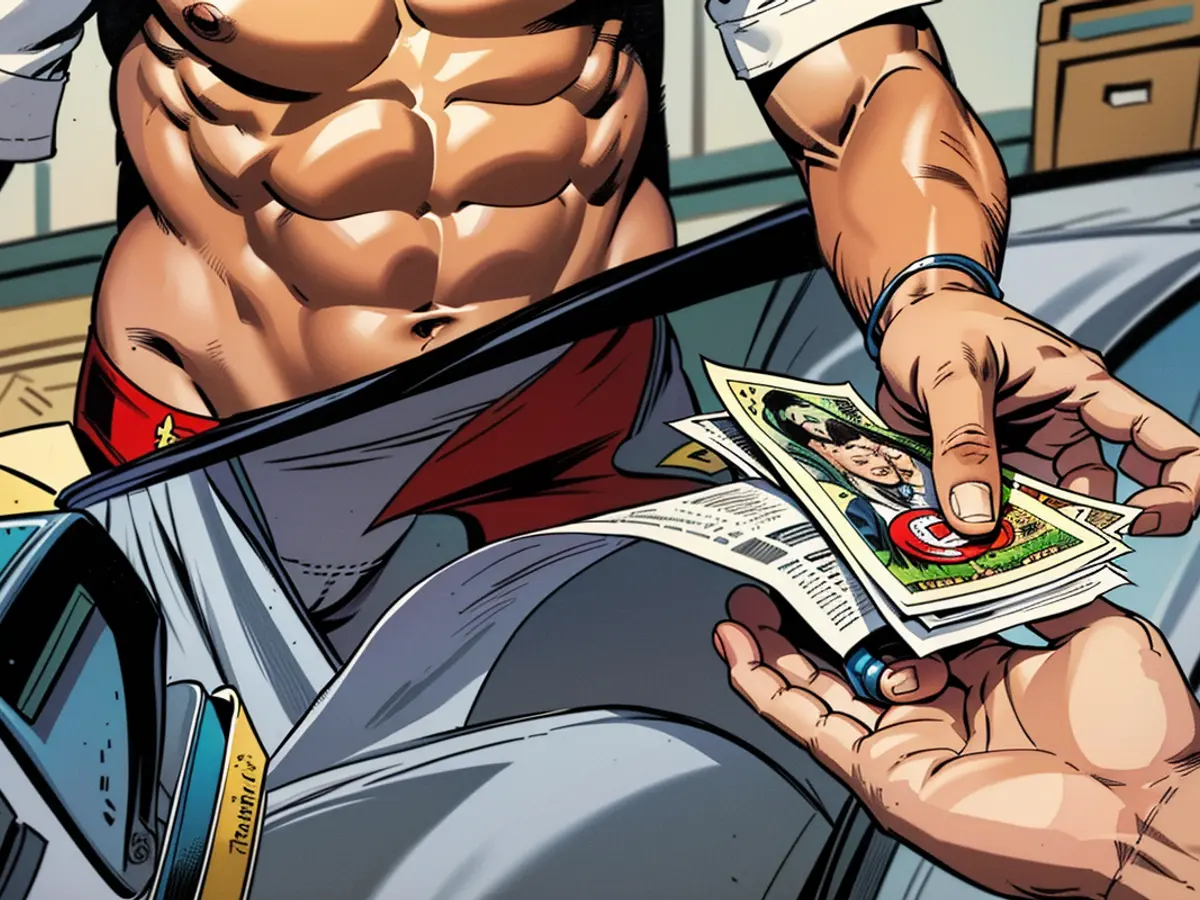Opinion: Why we can’t give up on capitalism
But if the free-market system is really the best model for any economy to expand, where a country’s citizens have the freedom to produce and choose their own path to success, why do so many Americans feel so glum about the US economy right now?
Indeed, earlier this year, a CNN poll found that 42% of Americans said their financial situation is worse than it was last year, while the Conference Board’s latest consumer confidence index found that consumers are feeling increasingly nervous about what could be ahead.
Ruchir Sharma, chairman of Rockefeller International and founder and CIO of Breakout Capital, has a pretty good hunch about what’s behind the angst. In his new book, “What Went Wrong With Capitalism,” he argues that the system the US has now can no longer be considered capitalism, thanks to an ever-expanding government and its new culture of bailouts and regulation, not to mention the enormous concentration of wealth and power among a handful of big businesses.
CNN Opinion’s Bethany Cianciolo spoke with him about what truly is the best economic system, the lessons we can learn from history and why, after growing up in socialist India, he still has hope that America will get it right.
CNN: Your new book, “What Went Wrong With Capitalism,” is a really fascinating look at how capitalism has become increasingly distorted over the past 100 years or so, especially in the United States. But before we look at the current issues, I’d love to talk about the good times. So is there a period that you can point to when capitalism was in its heyday, or really working for the average worker, small business owner — when it was really doing what it was meant to do?
Sharma: It has broadly worked for America for much of its economic history. But it’s in the last couple of decades, in particular, that capitalism seems to have not been working for the average worker. So I’d flip the question around and say that for most of America’s history,capitalism in its various forms worked. And it is really in the last couple of decades when I think that the deterioration has been quite marked.
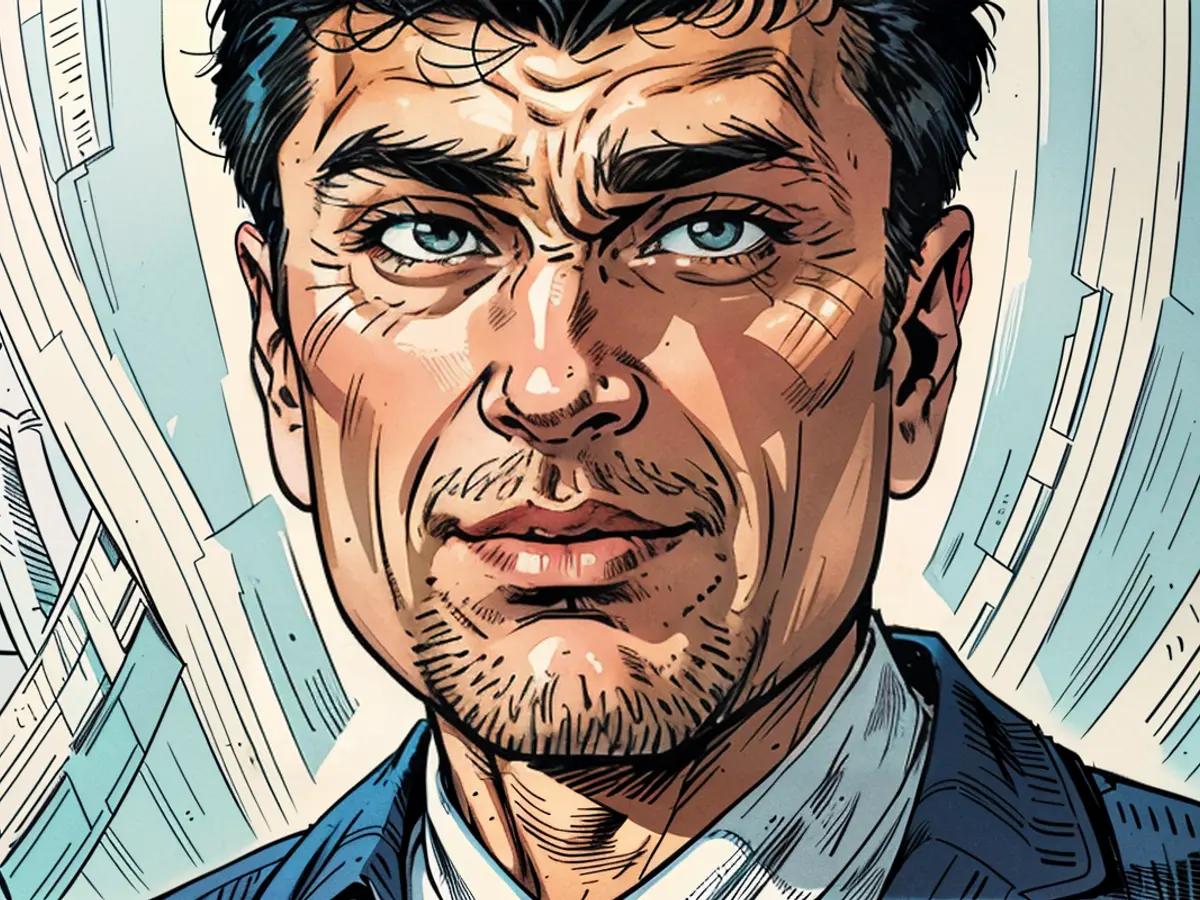
I don’t think there’s been a perfect period because there were very different forms of capitalism. There was the laissez-faire capitalism of the late 19th century and the early 20th century, but that was too ruthless with no welfare state, and very sharp swings in the economic cycle with the government playing absolutely no role to ease them.
And then after that, the government started to play a role. And what I’ve shown in the book is that the role of the government has increased over time, but it’s really the last couple of decades where the average voter is telling us that capitalism has stopped working for him or her.
Capitalism across the western world, not just America, I think has reached a point where it’s safe to ask the question: Is this capitalism anymore? Or is this a very different economic system and we need to label it as such?
CNN: And you also note in the book that pro-business is not necessarily the same as pro-capitalism, right?
Sharma: It’s actually a very important distinction. Yeah.
CNN: Can you explain that?
Sharma: I think it happens even with the Trump administration, that you think that because they’re speaking in favor of business and they’re sort of being friendly to big business, we think of that as pro-capitalism. And my point is no, that in fact pro-capitalism means that you’re looking to be pro-competition, and big business is often anti-competition. Big business is often in favor of regulations because they can help lobby and write the regulations to keep out a lot of the small and new entrants. Big businesses benefit a lot from regulation because the costs of compliance are huge.
So governments around the world, and including in the United States, often enforcepolicies that are beneficial to big business. Pro-capitalism means that you’ve got to constantly be thinking about what will lead to greater competition, what will lead to greater churn. Capitalism is about creative destruction, as the old line goes. So what is it that will lead to the existing businesses being cannibalized or even being destroyed, which sets the field for new businesses to come?
CNN: How does that concentration of power amongst a few big companies hurt everyday Americans?
Sharma: If you look at what’s happening in America today, there are so many towns that are dominated by one big business, which is an economic term called monopsonies. Now, when that happens, the people working in that town feel quite oppressed because they don’t have much bargaining power — there’s just one company providing most of the jobs in that town. Something similar is happening across the economy: As big businesses come to dominate, Americans enjoy less opportunity and mobility, whether it is in moving from one job to another or one town to another.
CNN: You also note in the book that government spending as a share of the economy has been rising over the past century, and that since the ‘80s, the US has almost become a bailout nation, if you will. And now the government is introducing thousands of regulations a year.
Sharma: On the bailout, until really the 1980s, America did not believe in the culture of bailing out companies because it was thought that, okay, it’s a private sector company. If it’s going to go bust, that’s just the way capitalism is supposed to function.
After that, you had the bailout of Continental Illinois, the first big financial bailout in the early ’80s. That was followed by the sweeping bailout of the savings and loans industry in the late 1980s, and from there bailouts just kept getting bigger, and broader. Now, the excuse for big bailouts is that the government is doing it because they want to save jobs and prevent the crisis from spreading.
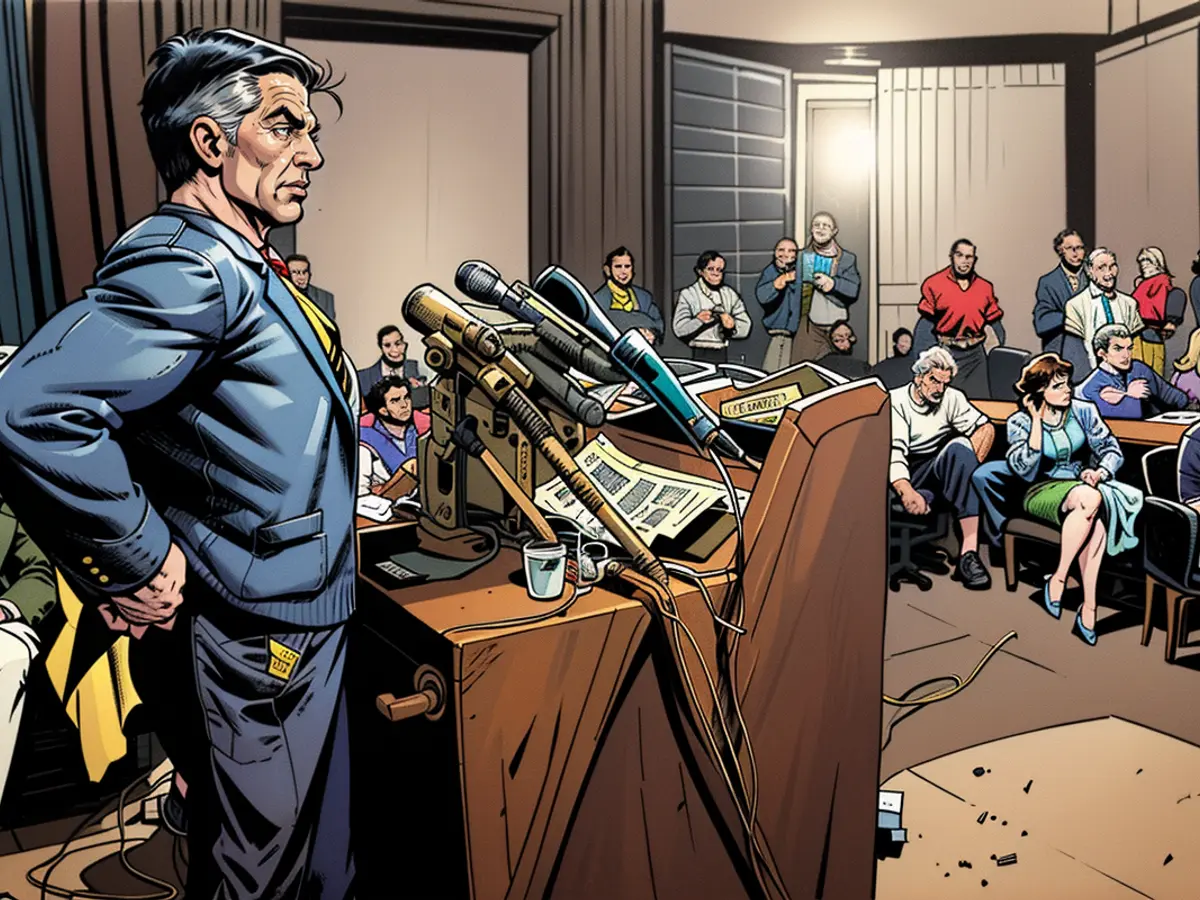
But the downside is that the average person feels that if these rich fat cats are getting bailed out, then why is more not being done for me? I think there was a feeling even in 2008 when they could argue that each of these bailouts made sense to prevent something worse from happening.
And on regulation, more of itmeans that the cost of doing business, and the cost for any new business to be set up, goes up significantly because of the regulatory burden.
America has been implementing 3,000 new regulations a year for the last three decades, and the total number of regulations withdrawn over that period is 20. So as regulations multiply, so do the costs. If I want to set up an investment fund, the cost of doing so today is 10 times larger than what it used to be 20 years ago.
And at a daily level, I quote some research in the book saying that white-collar employees now spend up to 16% of their time at work on legal compliance, which is a huge burden on the economy. It’s unproductive.
CNN: You’ve also said that risk has become socialized. Can you explain what you mean by that?
Sharma: Capitalism without bankruptcy is like Christianity without hell. If you do not allow anything to fail and you think everything is either too big or even too small to fail, then you’ve taken risk out of the system. An essential part of capitalism is for people to take risk and know that there are adverse consequences of taking such risk. But if the people in power or people who have the money are taking risks and knowing that the government is there to backstop them, I think that totally changes the way investors make decisions. People do stupid things. And that’s one big reason why, as far the stock market is concerned, when the market goes up, no one’s really saying much, but when the market goes down, you instantly have policymakers, the Fed, all starting to run to its rescue.
The first time that something like this happened was in the famous October 1987 crash, when Alan Greenspan became the first Fed chairman to explicitly cut interest rates to rescue the stock market. And after that, this notion arose that on the downside, the central bank is there to protect you against losses. And nobody is there to cap your gains when the market is booming. Policymakers say: We don’t know if markets are in a bubble or not in a bubble, so we’ve just got to ignore this.
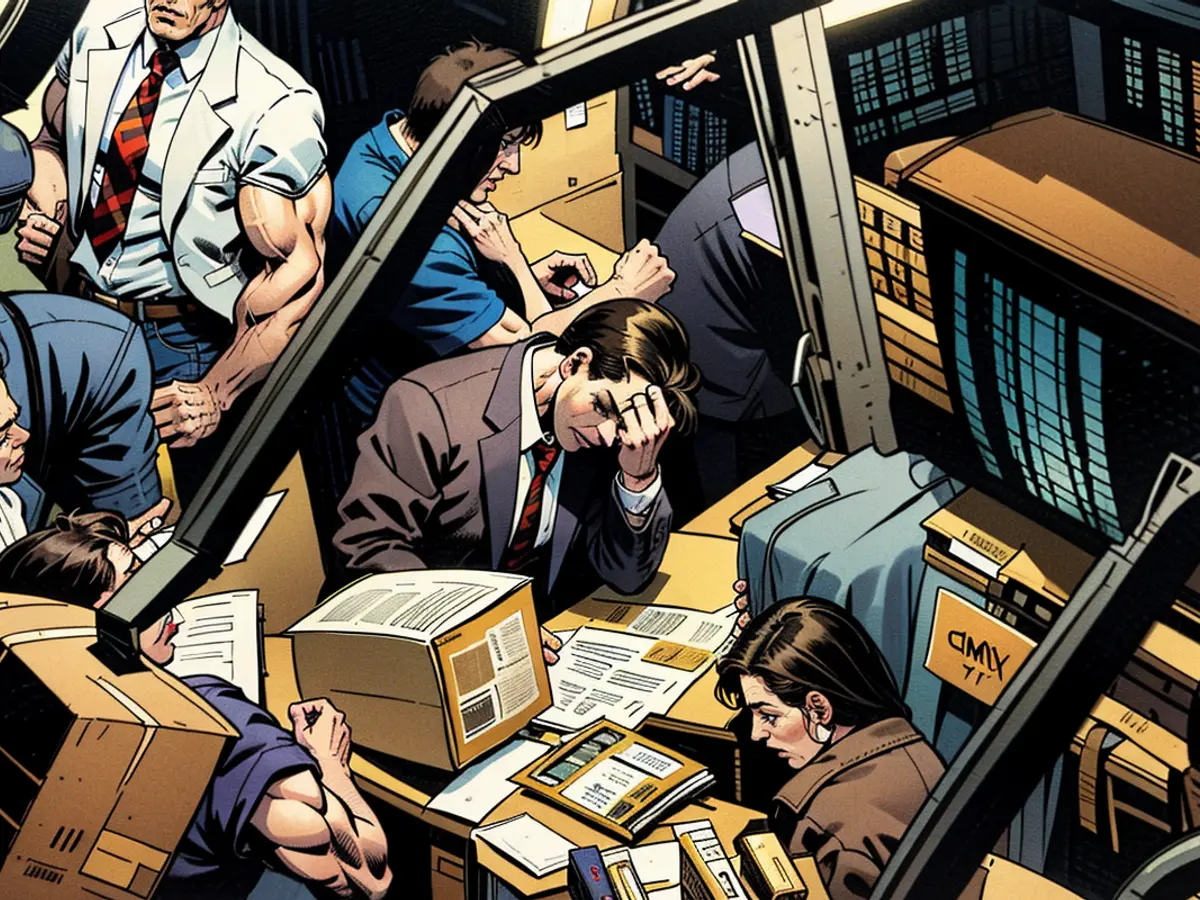
CNN: And what do you think drove that shift? Is it just the fear of what could happen if governments don’t come to the rescue?
Sharma: Exactly. I think that one constant fear among policymakers is a repeat of the Great Depression, which began with a stock market crash in 1929. Now every time there is any trouble in the financial market, the Great Depression gets invoked. Back then, the government did not intervene and the market crashed, and then the market kept on crashing and took the economy down with it eventually. That’s the scenario that still grips the imagination of policymakers.
So now, every time there’s even a flutter in the markets, there is the feeling that the contagion could be so large that we have to rescue it. And this becomes a vicious loop because when the government is providing that backstop, then people speculate more, the markets get even bigger, and then once they get bigger, the price of them falling also gets bigger. So then the governments and the Fed feel even more inclined to take action or take preventive action because the beast has become so big. As I document in the book, the size of financial markets now is four times larger than the size of the underlying economy.
CNN: You also note in the book that support for a larger state is higher now than it has been in at least 50 years, and that this support is not just among Democrats, but among Republicans as well. Do you have any thoughts on what our current model of capitalism means for the upcoming presidential election?
Sharma: I think it’s unfortunate that this expansion of the state has been a bipartisan project — it’s not mattered whether the Republicans or Democrats are in office. The federal debt has increased under every president because no one has looked to cut spending.
As far as at least the finances are concerned, both parties look to sort of be on the same path — a path of ever-increasing deficits and spending. I don’t see what changes that. And I think investors have also become desensitized to it. And no one seems to be paying any attention to any of this now. They’re just ignoring all of this.
CNN: And I wonder what that means for voters, right? Because as you’ve talked about, people are not happy with the state of the economy. Are there certain things you think voters will be looking for or things that are top of mind for them?
Sharma: Yeah, I think that the voters are deeply unhappy. But I think that the issue is that voters in general are in an anti-establishment mood. And I think that anti-establishment mood has been created across the western world, at least in part by the fact that the economic system is not working for people. And 70% of Americans today say the economic and political system needs major reform or “to be torn down entirely.”
The campaigns are trying to tap into that, but I don’t think that anyone is offering anything too dramatic. Trump sounds very anti-establishment on issues like trade, on issues like immigration, but on core economic issues, in terms of what he’s saying or even what the track record is, nothing is very anti-establishment because all he wants to do is to cut corporate taxes. He talks a lot about deregulation and downsizing “the administrative state,” but when he was in power, the number of regulations was still rising sharply. So there was no real change in that despite all the talk. If he had any direct and lasting impact on the administrative state, it was by appointing conservative judges — witness the recent Supreme Court decision that greatly limits the power of federal regulators to interpret congressional statues.
And then of course there’s the whole issue of deficits; under Trump, the US saw record deficits in a peacetime recovery. This made him a historically exceptional big spender. And now Biden has outdone Trump, exceptional squared, putting the US on course to run historically high deficits for years, compared to both its own past and other developed countries.
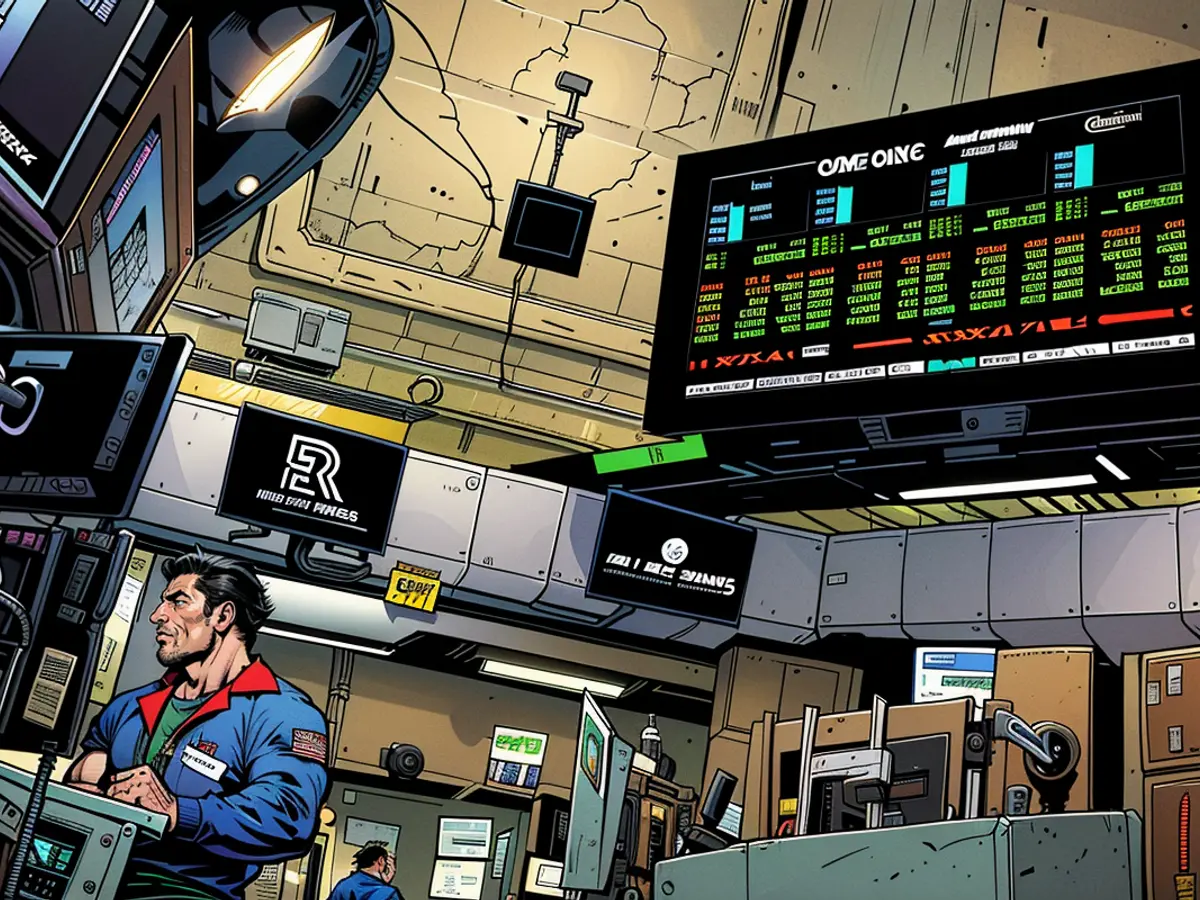
In America’s first 200 odd years of economic history, right up until the 1970s, America ran a significant budget deficit only in major wars or depressions. Since then it has run a significant deficit every year but four, and now we are running the highest budget deficit by far for an economy that’snot in an outright recession or depression. We are running a budget deficit of 6%, 7% of GDP, even though we technically have full employment. So my fear is that if you do get a downturn for some reason in the next couple of years, the budget deficit could explode to close to 9%, 10% of GDP. And is that number also going to be fine, or is at some point in time the bond market just going to revolt? You’ll have no capacity to cut rates or lower interest rates because if you’re running a budget deficit of 9%, 10% of GDP, that’s how much you have to increase the money supply to cover the deficit.
CNN: Why does this matter for voters?
Sharma: Well, I think it matters because there’s a deep sense somewhere that if you do not balance your books, that there will be a day of reckoning eventually. And what’s very interesting here is that despite this increased spending and increased deficit, the faith or the trust in the American government today is at an all-time low. So I think that somewhere deep down, people realize, is the government going to be able to fulfill its obligations if it keeps on running these kind of deficits? So far so good, but I think that somewhere deep down there is this uneasiness about it.
CNN: So where do we go from here? Is there a country that you can think of that has the right form of capitalism that could almost serve as a model for the United States?
Sharma: America still has lots of good things going for it. It is still the country that I want live in. It’s still the country that most people want to come to because it’s such a reservoir of talent and there’s so much that this country has to offer. But as an immigrant who has benefited so much from the American system, and so proud of what America had to offer to the world as a model, I don’t want to overlook all the strengths of America.
That said, Switzerland seems to be the trifecta, where government spending as a share of GDP is not that high compared to the US or European countries. They give their people lots of economic freedom. They generate great wealth, with relatively low inequality, and excellent health and welfare outcomes. Switzerland regularly ranks among the top nations for social indicators, including happiness. So Switzerland is one of the richest, the happiest, and the most fair and competitive capitalist countries in the world.
Now, as far as America is concerned, we still have a very high per capita income, but our scores for happiness, and for economic freedom are slipping — from fourth in the world two decades ago to 25th today. Trust in the US government is near all-time lows, in Pew Polls that go back to the 1960s; the more government promises to protect everyone from economic pain all the time, it seems, the less Americans trust it to deliver. Most don’t believe they will get their Social Security benefits, or that they will ever be better off than their parents were.
So I think that my idea of this book is to still have faith in America, but to show that the first step to a cure is to diagnose what the problem is. The standard narrative — that American capitalism failed as government shrank starting with Ronald — simply doesn’t square with the facts. Big billionaires and monopolies have risen with an ever-expanding government, squashing the competition and creative destruction that would in the past have competed the giants away. So have faith in the founding American model: Limited government and greater economic freedoms will generate better results.
Switzerland is not the only country betting the balance right — between smart state support and regulation, with ample room for freedom and competition. Taiwan is another very interesting model — it’s a very tech-savvy economy. Its government spending as a share of the GDP is just about 20% — half that of America. And yet its state was lauded for its deft response to the pandemic — which combined high-tech tracking of cases and rapid vaccine rollouts, but stopped short of state-mandated lockdowns. It also went into the pandemic with relatively light deficits and little public debt, so Taiwan was in a good position to spend what was needed. It shows that there is a role for the state, but not for “checkism”— the now widespread belief that the answer to every crisis is a bigger government check.
CNN: As you note, so many young people today are saying that they prefer socialism over capitalism. So what would you say to a young person who essentially says that they’ve given up on capitalism completely?
Sharma: What we have now is not capitalism, in which growth is driven by free competition, and the proceeds are delivered at least relatively fairly because the little guy has a chance. What we have now has been lampooned by progressives as “socialism for the very rich,” which is part right. What we really have is “socialized risk” for everyone:a government increasingly intent on preventing any economic pain, for the poor, the middle class, the rich and the very rich. In a system like that, the very rich do come out best off.
The book starts with my own youth in India, where I saw our national devotion to socialism create an economy that was both stagnant and deeply frustrating to millions, because it felt so unfree, so clogged with inefficient bureaucrats. I lost my grandfather to an incompetent public hospital, which botched the emergency installation of a pacemaker. As a youth, I saw capitalism as the answer to the problems of socialism. So this book is largely addressed to the young people who today see socialism and bigger government as the answer to the problems of capitalism. Beware what you wish for: The distortions you hate most — the billionaires and monopolies — are creations of big government. And an even bigger government is only going to make those distortions worse.
Despite Ruchir Sharma's belief that capitalism has broadly worked for America for much of its economic history, a significant number of Americans feel that it has stopped working for them in recent decades. This discontent can be attributed to the increasing concentration of power among a few big businesses, which often leads to less opportunity and mobility for everyday Americans.
In his book, Sharma makes a distinction between being pro-business and being pro-capitalism. He argues that pro-capitalism means promoting competition and creativity, which can lead to the destruction of existing businesses and the creation of new ones. On the other hand, pro-business often means being friendly to big businesses, which can sometimes benefit from regulations that keep out smaller competitors.
